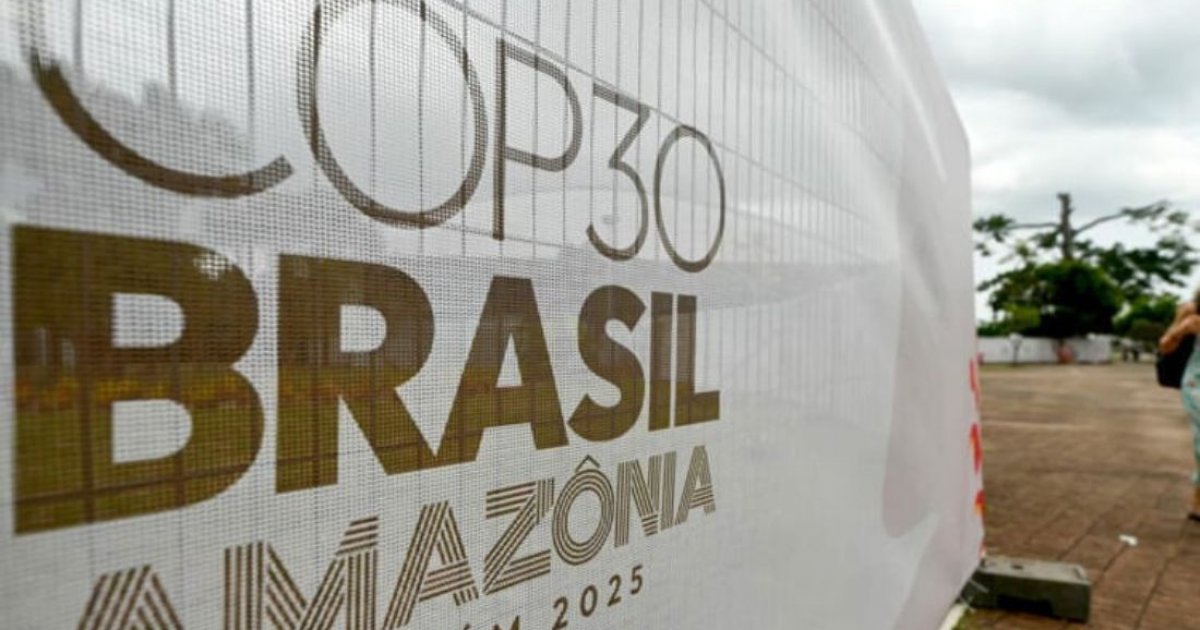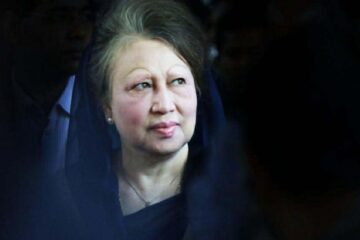The COP30 climate talks in Belém, Brazil, began on a promising note, but discussions on complex issues such as financing, carbon trading, and meeting the goals of the Paris Agreement have stalled.
The International Energy Agency reports that the world is moving toward renewable energy beyond the peak use of coal, oil, and gas, but the transition remains slow. Key points of contention include wealthy nations’ push to provide fewer grants than developing countries require, disagreements over market-based financing models, and a preference for loans over compensation or aid.
The G77, a coalition of 134 countries plus China, has called for a “just transition,” “green technology transfer,” and “debt-free financing.” Yet only $300 billion of the $1.3 trillion needed annually has been pledged, and much of that consists of loans. In reality, only a third of the funds have been disbursed, and just 3% has been spent on a just transition. Despite rising global temperatures, optimism about COP30 persists, as always. Observations from the first five days suggest that wealthy nations are still arguing over fair contributions—delays that could further accelerate global warming.
Rich countries have also failed to meet their pledge to provide $100 billion in climate finance annually by 2020. According to the OECD, $116 billion was provided in 2022, but Oxfam estimates the real value of grants to be much lower—about $95.3 billion in grant equivalents or less than $35 billion in actual grants. Most funding received by LDCs and developing countries comes through government channels, bilateral aid, or institutions like the World Bank.
In 2022, only one-fifth of this money was delivered as grants to the world’s 44 poorest and most climate-vulnerable countries; in Bangladesh and Angola, more than 95% came as loans. Much of the financing has instead gone to middle-income economies such as India and China, as well as wealthy petrostates like Saudi Arabia and the UAE. The UAE has received more than $1 billion in climate loans from Japan; Saudi Arabia about $328 million; China roughly $3 billion; and India around $14 billion.
Several European countries, including Serbia and Romania, have also received substantial sums. An analysis by Carbon Brief, using UN and OECD data, found that although a system exists for transferring funds from high-emission countries to vulnerable states, much of the money is allocated at the discretion of individual governments, without central oversight. As a result, funds often fail to reach the countries that need them most.
Japan, Germany, the US, and France provide roughly two-thirds of official climate finance. While US contributions had increased under President Biden, uncertainty remains due to the threat of USAID cuts and the potential for funding reductions under President Donald Trump. Several other wealthy donors have also scaled back their support.
Global negotiations on phasing down fossil fuels and expanding renewable energy are being held for the first time at COP30. A roadmap presented by Brazilian President Lula has won broad support, with many calling it a “game changer.” Developing countries continue to demand easier access to financing, while African nations insist that development should not be hindered. Experts warn that the rapid expansion of renewable energy could increase pressure for mineral extraction, especially in Africa and Latin America. Although Bangladesh is not a major mineral producer, rising global demand may raise the costs and affect the supply of materials needed for solar, wind, and battery projects. This international supply chain surge could also threaten environmental and human rights standards.
A widespread outbreak of yellow fever and dengue in South America is already demonstrating how the climate crisis directly threatens global public health. This year, the region has recorded 356 yellow fever cases and 152 deaths—the highest since 1960. Brazil has also reported about 6.5 million dengue cases and 5,000 deaths in 2024.
Dengue outbreaks have reached record levels in Europe as well. Experts say rising temperatures and erratic rainfall are enabling the rapid spread of Aedes mosquitoes, allowing tropical diseases to reach temperate regions. One recent study found that climate change is making human-transmitted diseases more dangerous. Extreme heat, floods, droughts, and storms are worsening disease outbreaks, increasing malnutrition and mortality, and placing enormous pressure on health systems.
The new Belém Health Action Plan, launched jointly by Brazil and the WHO, aims to help countries manage climate-induced health risks. Thirty-five organizations have pledged $300 million to support the initiative. Experts note that one person is now dying every minute due to rising temperatures—evidence that governments are still failing to prevent the growing human toll of climate change.
On Friday morning, members of the Indigenous Munduruku community in Brazil blocked the main entrance to COP30 for several hours, demanding direct talks with President Lula. Riot police and military forces later stopped them from approaching COP President Andrés Correa do Lago.
As long queues formed, delegates were redirected through an alternative route. The protest reflects the increasing visibility of civil society and Indigenous groups at COP30. UN Secretary-General António Guterres has said that strong Indigenous and community voices are essential to counter the influence of fossil fuel lobbyists. This year’s conference includes one fossil-fuel lobbyist for every 25 participants.
Numerous protests, marches, and events are taking place daily inside and outside the venue, addressing issues such as agribusiness, mining, transportation, women’s rights, Palestine, and Indigenous land demarcation. Civil society groups are calling for the creation of the Belém Action Mechanism (BAM), which would support a just transition and ensure workers and communities have a central role in decision-making. Kayapo leader Raoni Metuktire has warned that the world will face severe consequences if destruction of the Amazon continues. Their presence at COP30 reinforces the global push for environmental protection and Indigenous rights.
The Amazon is facing its most severe drought and wildfire season in recent history, according to a new study by the Indigenous organization Coiab in the Brazilian Amazon. The area affected by extreme drought expanded from 8.7 million hectares in June 2024 to 21 million hectares by September—a 2,300% increase in just three months. More than 160 Indigenous territories have been impacted. El Niño, North Atlantic warming, deforestation, and forest degradation have combined to intensify the crisis. Coiab argues that the most effective way to protect Indigenous communities is to demarcate and legally recognize their lands. Currently, 29 Indigenous territories in the Amazon are awaiting demarcation—a measure that would demonstrate a genuine commitment by governments to Indigenous rights.
The Australian and Turkish pavilions sit side by side in Belém at COP30. Both countries are competing to host COP31 in 2026, but no final decision has been reached. Australia favors a Pacific-hosted conference, while Turkey hopes to position itself as a bridge between the Global North and South. Selecting the COP31 host is politically and diplomatically complex, requiring consensus among the 28 members of the Western European and Others Group (WEOG), the UN regional group responsible for the decision. Brazil and the United Kingdom are mediating discussions, and negotiators hope to finalize the COP31 venue soon.



